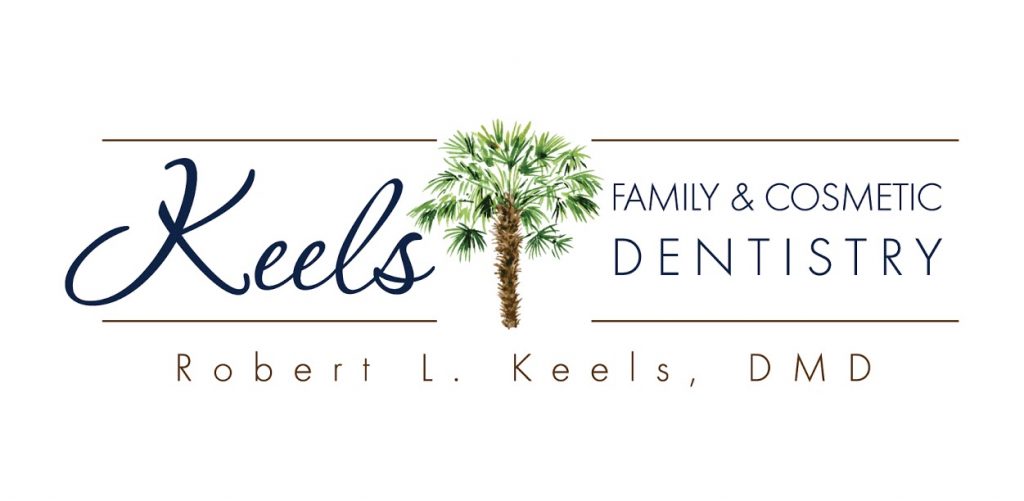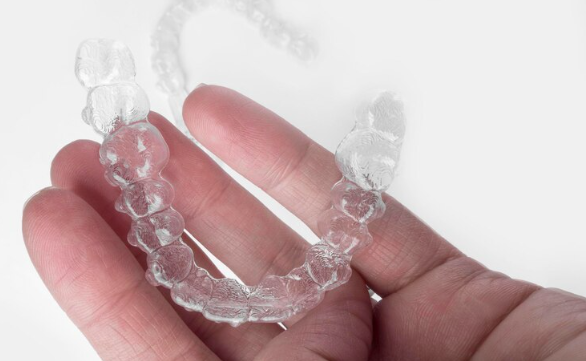SCHEDULE AN APPOINTMENT!
Have you ever heard of pediatric crowns? They are a type of dental restoration used specifically for children’s teeth that have been compromised due to decay or damage.
As a parent, you may be wondering how this restoration could benefit your child and whether or not it’s worth considering. At Keels Family & Cosmetic Dentistry, we understand that your children’s oral health is a top priority. That’s why we offer pediatric crowns as one of our services in Duncan, SC.
Our dedicated and experienced team will work hard to ensure your child’s dental crown fits properly and looks great. We also make sure to use the latest advances in modern dentistry so your child can get the best care.
Our pediatric crowns will help your child maintain healthy teeth for years to come, so you can rest assured knowing that your child’s smile is in good hands. Contact us today if you have any questions or want to schedule an appointment at Keels Family & Cosmetic Dentistry.
Types of Pediatric Dental Crowns
Pediatric dental crowns play a crucial role in preserving and restoring the oral health of children. When a tooth is extensively damaged or weakened by decay or trauma, a dental crown provides a protective covering that helps maintain its structure and functionality.
Stainless Steel Crowns
Stainless steel crowns (SSCs) are the most commonly used type of dental crowns in pediatric dentistry. These crowns are durable, cost-effective, and highly resistant to corrosion. SSCs are particularly suitable for posterior teeth, where they provide excellent strength and longevity. They are pre-fabricated and can be easily adapted to fit the child’s tooth shape, allowing for a relatively quick and efficient placement process.

Composite Resin Crowns
Composite resin crowns are tooth-colored restorations that offer an aesthetically pleasing alternative to stainless steel crowns. These crowns are made of a mixture of dental resin and other materials, providing a natural appearance that blends seamlessly with the child’s existing teeth. Composite resin crowns are typically used for anterior teeth when the restoration requires both durability and esthetics.
Zirconia Crowns
Zirconia crowns are a newer addition to the range of pediatric dental crowns. These crowns are made from a strong ceramic material known as zirconia, which exhibits excellent biocompatibility and durability.
Zirconia crowns are highly resistant to chipping and fracture, making them suitable for both anterior and posterior teeth. They are available in a variety of shades, ensuring a precise color match with the child’s natural teeth.
Porcelain-Fused-to-Metal (PFM) Crowns
Porcelain-fused-to-metal crowns combine the strength of a metal substructure with the aesthetic appeal of porcelain. These crowns are fabricated by layering tooth-colored porcelain onto a metal framework.
While PFM crowns provide good esthetics and durability, they are less commonly used in pediatric dentistry due to potential wear of opposing teeth and the possibility of allergic reactions to metal.
Strip Crowns
Strip crowns are temporary, preformed crowns made from thin plastic. These crowns are primarily used for short-term purposes, such as maintaining space in the mouth or protecting teeth during the eruption process. Strip crowns are not as durable as other crown types, but they serve as a convenient interim solution until a more permanent restoration can be placed.
Choosing the right type of dental crown for your child involves considering factors such as the tooth’s location, the extent of damage, durability requirements, and esthetic concerns. Pediatric dentists are trained to assess each case individually and recommend the most suitable crown type.
Common Reasons For a Pediatric Dental Crowns
Dental crowns for children, also known as pediatric dental crowns, are used in various situations to restore and protect primary (baby) teeth.
Here are some common reasons why a pediatric dental crown may be recommended:
- Tooth decay: When a child’s tooth has extensive decay that cannot be repaired with a simple filling, a dental crown may be necessary to restore the tooth’s structure and prevent further damage.
- Fractured or broken teeth: If a child’s tooth is severely fractured or broken, a dental crown can strengthen and support the affected tooth, allowing it to function properly.
- Structurally compromised teeth: Some children may have naturally weak teeth or teeth with developmental defects that make them prone to damage. Dental crowns can reinforce and protect these teeth, reducing the risk of further complications.
- Root canal treatment: In cases where a primary tooth requires a root canal procedure to remove the infected pulp, a dental crown is often placed over the tooth to provide added strength and protection.
- Cosmetic purposes: Dental crowns can be used to improve the appearance of a child’s teeth. They can be used to cover discolored or severely stained teeth, improving the aesthetics of their smile.
- Tooth abnormalities: Children with tooth abnormalities, such as enamel hypoplasia or amelogenesis imperfecta, may require dental crowns to restore the shape, size, and function of their affected teeth.
- Trauma or injury: If a child experiences significant trauma or injury to a tooth, a dental crown may be necessary to repair and protect the damaged tooth.
Remember that each child’s case is unique, and the need for a dental crown will depend on individual circumstances. A qualified pediatric dentist at Keels Family & Cosmetic Dentistry will thoroughly evaluate the child’s dental health and recommend the most appropriate treatment options.
Do Pediatric Dental Crowns Fall Out on Their Own?
Pediatric dental crowns are an important part of maintaining children’s oral health. They protect teeth that have been weakened by cavities or trauma and can help prevent decay from worsening. However, parents must be aware of what could cause pediatric dental crowns to fall out independently.
In general, the most common reason for a pediatric dental crown to come off is due to poor oral hygiene practices. If children don’t brush and floss their teeth regularly, plaque can build up around the edges of the crown, leading to decay. Decay can weaken the bond between the crown and its supporting tooth structure, causing it to break away.
Other potential causes include:
- Tooth grinding or clenching
- Physical trauma from a fall, sports injury, or accident
- Poorly fitting dental crowns due to inaccurate measurements or incorrect placement
Children need to follow their dentist’s instructions to properly care their pediatric dental crowns. Parents should also ensure that their child wears a protective mouthguard when playing contact sports and is cautious with physical activities that can cause trauma to the mouth. Regular dental check-ups will also help ensure the crowns stay in place.
Does My Child Really Need a Dental Crown?
A dental crown may be necessary in certain cases when it comes to your child’s dental health. Generally speaking, when there is significant decay or damage to the tooth that can’t be fixed with a filling, a crown may be needed to protect the tooth’s integrity.
Additionally, if your child has multiple fillings and their teeth are weakened due to extensive decay, a crown can be used to restore strength and prevent further damage.
Sometimes, a crown is also recommended to protect the tooth after a root canal. After a root canal, there may not be much of the original tooth structure left, so by adding a crown, it helps to strengthen and protect what’s left of the tooth.
Crowns are also used for aesthetic purposes, such as to improve the appearance of a misshapen or discolored tooth. If your child is self-conscious about their smile, crowns can be a great way to boost their confidence and help them feel better about their teeth.
Take note that crowns are permanent and cannot be easily removed or replaced. That’s why it’s important to consult with your child’s dentist before deciding if a dental crown is the right solution for them. Your dentist can help you evaluate the risks and benefits of a crown so that you can make an informed decision about whether or not it’s the best option for your child.
If you’re considering getting a dental crown for your child, don’t hesitate to ask Keels Family & Cosmetic Dentistry any questions. Our team is always ready to provide you with the right answer you need!
Is There An Age Requirement For A Pediatric Dental Crown?
The age requirement for a pediatric dental crown can vary depending on the dental health condition of the child. In general, dental crowns are used when a child’s primary (baby) tooth has significant decay or damage that cannot be repaired with a simple filling. The primary tooth is usually kept in place until it naturally falls out, and dental crowns can help protect and preserve it until the permanent tooth is ready to erupt.
Pediatric dental crowns are typically recommended for children who have developed their primary teeth fully, which is usually around the age of 2 to 3 years old. However, there is no strict age requirement for getting a dental crown. Instead, the decision is based on the individual child’s dental health needs.
Pediatric Crown Alternatives
While dental crowns are commonly used in pediatric dentistry to address various dental issues, there are a few alternatives that may be considered depending on the specific situation. Consult with a pediatric dentist who can evaluate your child’s dental health and recommend the most suitable treatment options. Here are some potential alternatives to pediatric dental crowns:
- Dental fillings: Dental fillings are commonly used to treat small to moderate-sized cavities in primary teeth. If the tooth decay is not extensive and the tooth structure is relatively intact, a filling may be sufficient to restore the tooth.
- Dental bonding: Dental bonding involves applying a tooth-colored resin material to the tooth surface to repair chips, fractures, or minor tooth decay. It is a less invasive option compared to dental crowns and can be suitable for certain cases.
- Stainless steel crowns (SSCs): While dental crowns are typically made of porcelain or tooth-colored materials, stainless steel crowns are a more cost-effective option. SSCs are often used for primary teeth, especially in posterior (back) teeth, where aesthetics may be less of a concern.
- Tooth extraction: In cases where a primary tooth is extensively decayed, structurally compromised, or causing severe pain or infection, extraction (removal) of the tooth may be considered. This option may be recommended if other treatment alternatives are not feasible or if the tooth is about to naturally fall out.
- Space maintainers: If a primary tooth is lost prematurely, a space maintainer can be placed to hold the space and prevent neighboring teeth from shifting. This is an alternative when a dental crown is not necessary.
- Pulp therapy: In some cases of tooth decay or infection, pulp therapy (root canal treatment) may be an alternative to dental crowns. It involves removing the infected pulp from the tooth and filling it with a suitable material to preserve the tooth structure.
The choice of treatment will depend on factors such as the extent of tooth damage, the child’s age, the location of the affected tooth, and the overall dental health of your child.
Consulting with Keels Family & Cosmetic Dentistry pediatric dentists will help determine the most appropriate alternative to dental crowns for your child’s specific situation.
Give us a call today!
Why Choose Keels Family & Cosmetic Dentistry?
Make An Appointment
At Keels Family & Cosmetic Dentistry, we understand that people choose our practice for a multitude of reasons. Our prime location offers convenience to our valued patients, making it easy to schedule appointments and prioritize their oral health. The trust and satisfaction of our patients, who often refer friends and family, have solidified our reputation as a professional and caring dental office within our community. Our comprehensive services range from cosmetic dentistry to dental care for the entire family, ensuring that we meet the unique needs of every member. We work with various dental insurance plans to make quality care accessible. With flexible scheduling, a warm and welcoming atmosphere, state-of-the-art technology, and a commitment to patient education, we aim to provide not just dental services but also a comfortable and personalized experience. At Keels Family & Cosmetic Dentistry, we prioritize the health and well-being of our patients above all else, fostering a strong personal connection with each individual who walks through our doors.



